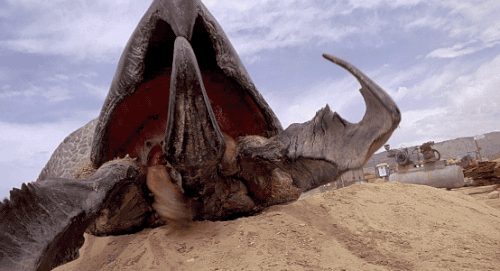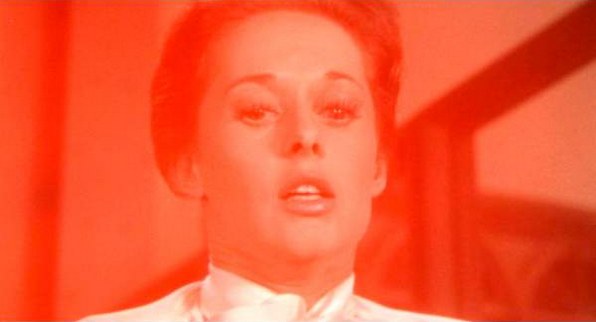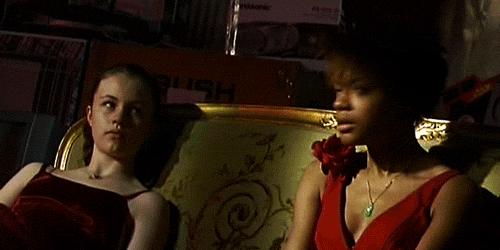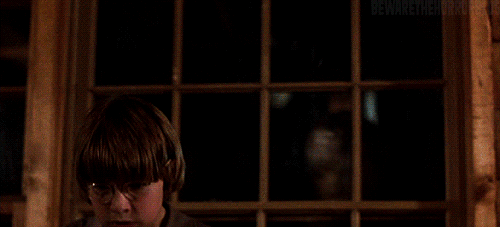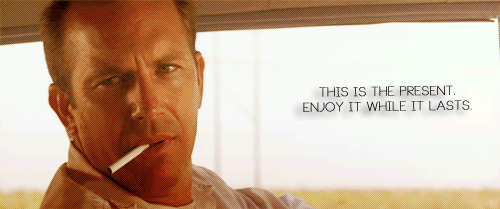 The Selfish Giant (Clio Barnard, 2013)
The Selfish Giant (Clio Barnard, 2013): As bleak and depressing as the impoverished, polluted landscape, this small, British, slice-of-life drama about two wayward boys trying to come of age in a land with few opportunities and little hope packs a somber punch. I was very impressed with both child actors, and the nuanced script captures the essence of their friendship, from the roughhousing to the petty jealousies to the moments of occasional tenderness. The film doesn't paint a pretty picture. Life for these characters is hard, their future is dim, but the ending, although depressing and tragic, carries a hint of optimism. Due to the thick accents and rampant slang, I probably only understood about 70% of the dialogue. The gloomy tone might be too oppressive for some viewers, and the slow pace occasionally bogs down the story, but even though I have little interest in revisiting this film, it will linger in my mind for quite some time.
 The Adventures of Buckaroo Banzai Across the Eighth Dimension (W.D. Richter, 1984)
The Adventures of Buckaroo Banzai Across the Eighth Dimension (W.D. Richter, 1984): It's evident from the title and the opening text that this is going to be a ridiculous film that doesn't take itself seriously and instead only strives to be a silly, fun, adventurous sci-fi romp. I can see why it's developed a cult following, but the typical cult ingredients--- bad special-effects, hammy performances, goofy plot--- that make it entertaining for some only made it a chore for me. Perhaps if I was stoned or still in diapers I would've more easily surrendered to the idiocy of Buckaroo Banzai's exploits against the Red Lectroids.
 Highlander (Russell Mulcahy, 1986)
Highlander (Russell Mulcahy, 1986): If there can be only one, and
Highlander is the only choice, I choose none. The premise is just as ridiculous as
Buckaroo Banzai, but thankfully the execution isn't as goofy. I had fun with the film for awhile, especially during the medieval flashbacks, which are boosted by the presence of Sean Connery, and there's a geeky charm to the swords and sorcery and beheadings taking place in parking lots and alleyways of New York City, but Lambert's lifeless performance, the insipid romance with Roxanne Hart's character, and the abundance of corny dialogue eventually took their toll on my enjoyment. My favorite aspect of the film? Queen's soundtrack.
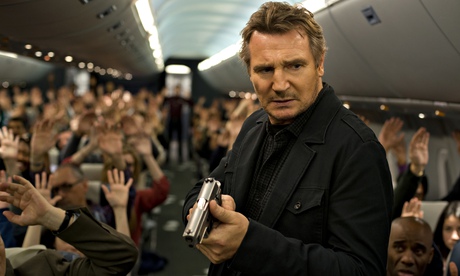 Non-Stop (Jaumé Collet-Serra, 2014)
Non-Stop (Jaumé Collet-Serra, 2014): Ever since Neeson displayed his very particular set of skills in
Taken, he's found himself re-enacting the same basic character in multiple films. His gravitas and no-bullsh!t manner lends itself very well to these stoical, action-hero roles, and that remains true in
Non-Stop.The movie wants viewers to question whether the terrorist plot is real or a figment of Neeson's imagination (his character carries the clichéd tragic backstory/substance abuse problems so prevalent in action heroes nowadays). If the camera focuses on a character for more than five seconds, expect that character to either die or become a suspect. Things improve once the movie puts aside the whodunit aspect and embraces the
Taken on a Plane premise most viewers expect.
 Titan A.E. (Don Bluth & Gary Goldman, 2000)
Titan A.E. (Don Bluth & Gary Goldman, 2000): The contrast of hand-drawn animation with CGI is occasionally too noticeable, but for the most part I thought the styles meshed really well and gave the film a unique look. For an animated film, however, it lacks the usual sense of humor and fun, as it tries (unsuccessfully) to appeal to both kids and teenage audiences. The story contains too many swerves, as characters switch back and forth (then back again) from being heroes to villains. Apparently rock n' roll takes several steps backward over the next one thousand years, since the soundtrack is littered with some of the most boring, generic rock songs I've ever heard. And Matt Damon might be a good actor in live-action films, but his voice doesn't lend itself well to animation, failing to infuse his drawn character with life or personality. Outside of the lovely animation, this is a very forgettable film.
 The Spectacular Now (James Ponsoldt, 2013)
The Spectacular Now (James Ponsoldt, 2013) : With an assured, confident, laid-back approach,
The Spectacular Now brings to life its characters, who talk and act and love like normal teenagers. Shailene Woodley and Miles Teller exhibit great chemistry and deliver very natural performances. Jennifer Jason Leigh and Kyle Chandler are also very good in limited roles. The movie lacks the over earnestness of most coming-of-age films and it avoids many of the typical clichés. The framing narrative felt a bit contrived, and the story gets a little too melodramatic in the final act, but overall
The Spectacular Now nails the feeling of first love as well as the intimidation of impending adulthood and responsibility when compared to the carefree days of high school. I liked this movie a lot more than I expected to, largely because of how much I empathized and related to the characters. One of the better coming-of-age films I've seen in awhile.
 Brick Mansions (Camille Delamarre, 2014)
Brick Mansions (Camille Delamarre, 2014): Pointlessly set in the future with a skeletal plot and no attempt at world building or characterization, this action-thriller fails at being entertaining or enjoyable. The sole highlight is watching David Belle (an actor with whom I'm unfamiliar) deliver some very impressive, Jackie Chan-like stuntwork. He's not much of an actor, but neither is Paul Walker or RZA or anyone else in the film.
 The Other Woman (Nick Cassavetes, 2014)
The Other Woman (Nick Cassavetes, 2014): Nowhere near as bad as I had feared, although I guess Kate Upton running slow-motion in a bikini will cover many flaws. Leslie Mann, usually relegated to small supporting roles, gives a commendable comedic performance with almost Jim Carey-like energy and enthusiasm. I wish films would stop resorting to the whole drinks-spiked-with-laxatives gag, since it hasn't been funny since
Dumb and Dumber. Overall,
The Other Woman is a bit too long, relies a little too much on bathroom humor, but it entertained me and made me laugh a few times. A decent date movie.
 Hell Baby (Robert Ben Garant & Thomas Lennon, 2013)
Hell Baby (Robert Ben Garant & Thomas Lennon, 2013): It's easy to squeeze humor from familiar horror tropes and clichés, but instead of being an uproarious spoof of haunted house films and exorcism films,
Hell Baby feels like a lazy comedy sketch that goes on for far too long. It's as if the people involved had a weekend to spare, drove past a dilapidated house, bought a few cheap props and decided to string together a half-assed attempt at a film. When a rare joke actually lands, it feels like an accident. Poorly made in every aspect, but at least it's short and it goes down easy.
 Species (Roger Donaldson, 1995)
Species (Roger Donaldson, 1995) : A pubescent Michelle Williams plays an alien in a cage that escapes after Ben Kingsley tries to gas her to death; she then boards a train, breaks out in a rash of bad CGI, enters a vagina-like cocoon and emerges as a horny supermodel obsessed with getting knocked up. Despite the B-movie premise, the film boasts an impressive cast (Ben Kingsley, Michael Madsen, Forest Whitaker, Alfred Molina). Natasha Henstridge looks great naked, and her shortcomings as an actress actually play to her inhuman character's strengths, since she's supposed to act unnatural. I thought the movie failed to capitalize on the sympathetic nature of the alien's situation. Instead of giving audiences something morally complex, the movie is content to go with a typical creature-feature approach. The subterranean climax felt overly messy and lacked any tension or excitement, but it featured a scene where one character is nearly strangled to death by a nipple, so that's a first. Enjoyable schlock, but I won't be bothering with the sequels.



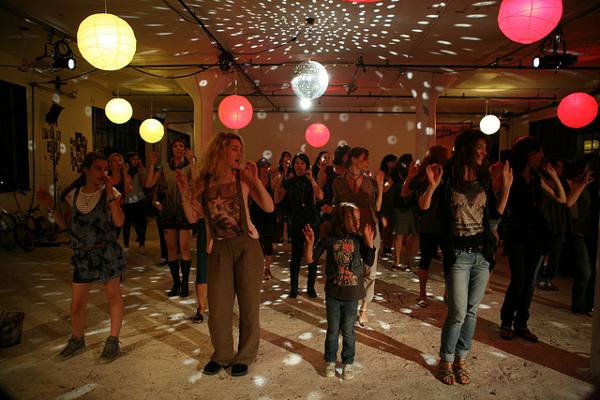





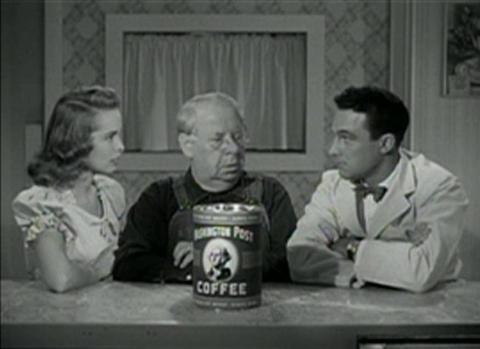


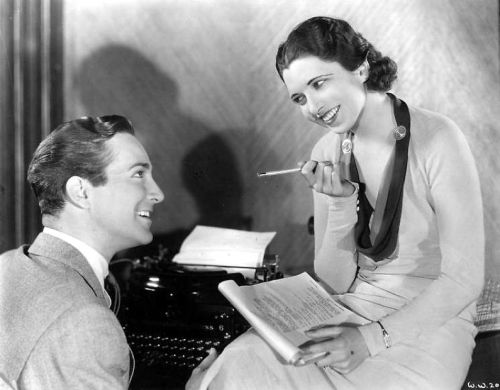





























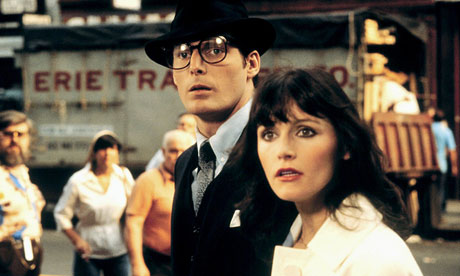


 ). Besides the music and the visual qualities (which I loved greatly). Also there is the deconstruction of the magical girl genre, which first requires experience with this genre of Japanese fiction before one watches PMMM, as one can see . However, later in the series, I started identifying with the characters and the TV show felt more real with each and every moment, by the end of the 8th episode I was completely enraptured by it, Sayaka's death was a crushing experience and I felt the most satisfying "film" experience I ever had. After finishing it I had the impression that mainstream film is long dead, now the real action is on other mediums, where the smart kids are focused on, such as this creative and yet accessible work of TV animation, combining the best of both worlds of entertainment and art.
). Besides the music and the visual qualities (which I loved greatly). Also there is the deconstruction of the magical girl genre, which first requires experience with this genre of Japanese fiction before one watches PMMM, as one can see . However, later in the series, I started identifying with the characters and the TV show felt more real with each and every moment, by the end of the 8th episode I was completely enraptured by it, Sayaka's death was a crushing experience and I felt the most satisfying "film" experience I ever had. After finishing it I had the impression that mainstream film is long dead, now the real action is on other mediums, where the smart kids are focused on, such as this creative and yet accessible work of TV animation, combining the best of both worlds of entertainment and art.



